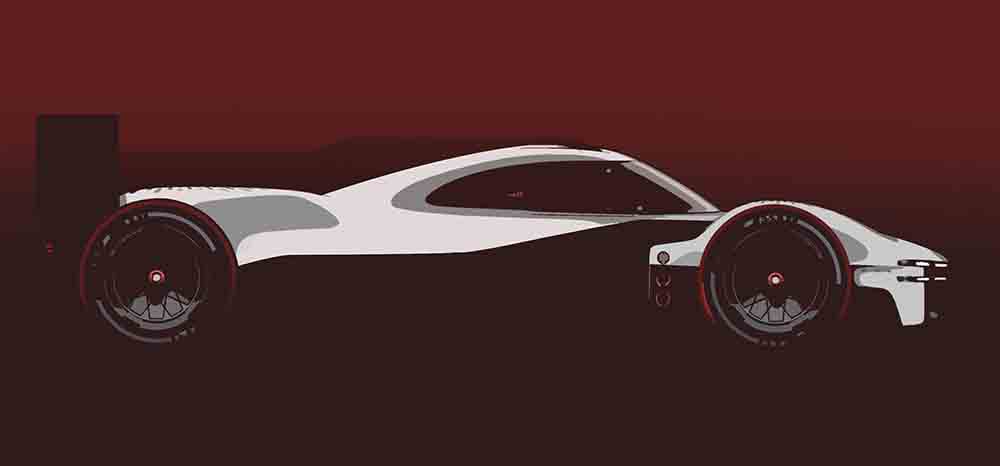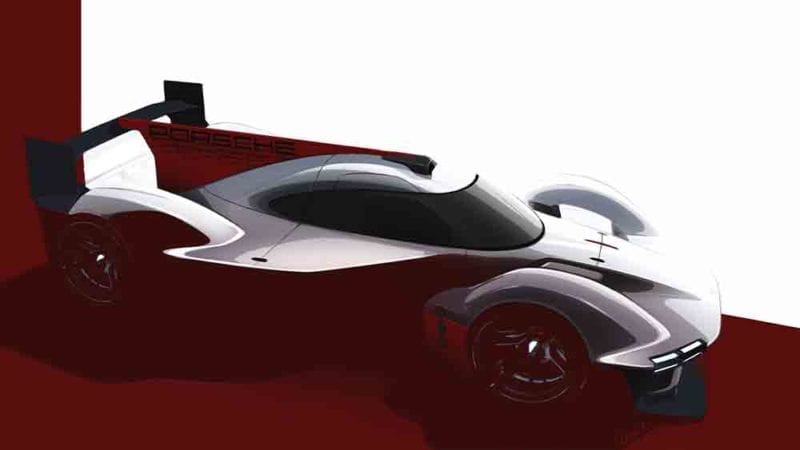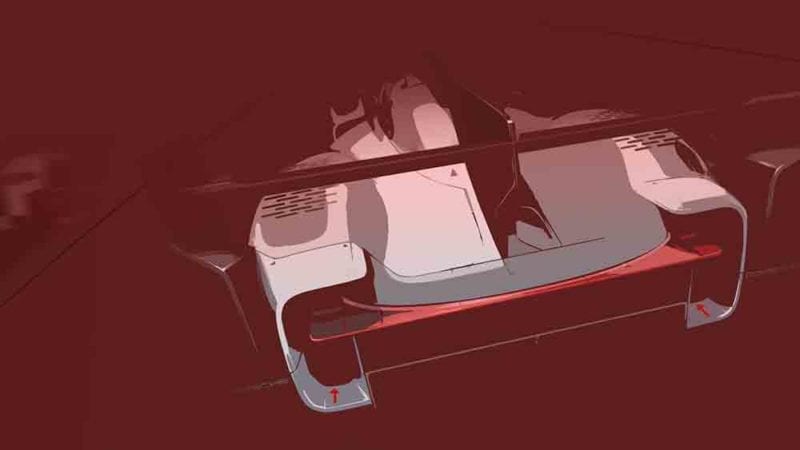Why new LMDh category is the saviour of sports cars
Porsche will return to Le Mans in 2023 with a new LMDh project, but might the new rules ultimately kick-start a revolution that could rival Group C? Damien Smith finds out

The Porsche factory team set the gold standard in the heart of the 1980s Group C era, but it’s also true that it could have throttled the life out of the formula, particularly in its dominant early days. What saved Group C was Porsche’s canny decision to sell customer cars to privateers, some of whom had the backing and technical nous to develop their own 956s and 962s, and on occasion beat the factory, or at least represent the manufacturer when the worksteam missed races. Imagine how thin grids would have been without that policy, how much less colourful (so many great privateer liveries…) – and how short the wonderful Group C era might have become.
Happily, Porsche appears set to embrace a similar approach on its return to the premier division of sports car racing in 2023. In December, the manufacturer gave us something to smile about in these depressing times by confirming its intention to bid for overall victory at Le Mans, in the World Endurance Championship and in the US IMSA series with a new contender built to the unifying LMDh rules due to come on stream – the first since the 1990s that will allow one model of prototype to compete on both sides of the Atlantic.

The new LMDh rules are based on the current LMP2 chassis with manufacturers able to adapt engines and bodywork to make theirs unique. And it could open the door for customer versions…
The new LMDh rules are based on the current LMP2 chassis with manufacturers able to adapt engines and bodywork to make theirs unique. And it could open the door for customer versions…
He didn’t confirm it, but motor sport boss Pascal Zurlinden spoke openly about the possibilities of offering customer cars in LMDh, the category which will also lure Volkswagen stablemate Audi back to Le Mans. The two most successful manufacturers at the 24 Hours, with 19 and 13 wins respectively at the race, will face Toyota and Peugeot in the parallel Hypercar class, with potentially more car makers, including possibly McLaren, Honda (Acura) and even Ferrari, weighing up the chances of joining them. Now imagine if all of them take a leaf from Porsche’s Group C policy. The variety and number of entries bidding for a spot on the Le Mans grid could explode in a manner not seen since the race’s 1960s heyday.
“We could go back to the 1980s and ’90s with lots of cars and lots of manufacturers,” said Zurlinden, “and if everyone does some customer cars, this could become really big for all of us. If a customer would win, even if we have a works team, in the end it is still a Porsche, so we would be really happy.”
“If everyone does some customer cars, this could become very big”
LMDh, devised by IMSA and adopted with enthusiasm by Le Mans organiser Automobile Club de l’Ouest and the FIA, is the vaccine sports car racing has been calling out for in the wake of the LMP1 category’s hybrid era, when costs soared and hopes for overall victory stretched far out of the reach of privately funded teams. Now a formula has been created based around chassis rules from LMP2 – the increasingly popular secondary prototype division originally created solely for customer teams – along with a spec hybrid system from Williams Advanced Engineering, plus standard Bosch electronics and an Xtrac gearbox. The choice of internal combustion engine is free, as is body styling. As Zurlinden said, it’s tailor-made for the big car makers as they can race for victory at a “reasonable cost”.

Porsche will join sister brand Audi in a Le Mans return with LMDh machinery, while Toyota and Peugeot have committed to Hypercar programmes
“It’s amazing, isn’t it?” says Richard Dean, boss of United Autosports, the team that in 2020 claimed an LMP2 triple by winning Le Mans, the class WEC title and the European Le Mans Series – and is now one of many eyeing the forthcoming LMDh era. “For the past decade and more there’s been a hole at the top of the sports car tree where ambitious teams like ours have had no opportunity to compete at that top level.
“LMP2 has been very much the level you can compete at and in my mind that has become the race. OK, that’s because we’re in it, but with 26 cars at Le Mans it’s easy to take your eye off Toyota racing against [privateer] Rebellion. In my mind I’m picturing the 26 cars in LMP2 replicated in the top class, with privateers and factory teams competing with the same equipment.”
From his career as a driver at Le Mans – he won the GT2 class with Panoz in 2006 – through to his transition as a team owner, Dean is well versed in the “cycles of boom and bust” in sports car racing. “You see manufacturers pulling out of other series, such as Formula E,” he says, referring to Audi and BMW’s decisions to withdraw from the all-electric series after 2021. “Budgets haven’t been under control and have been allowed to accelerate to a point where it’s more than they want and are able to spend. That’s been the same in the regulations of any top class, whether it’s Formula 1 or sports cars. You can sell anything if the price is right, throughout life. It doesn’t have to be more complicated than that.”
It should also be added that teams such as United are keeping an open mind on which strain of sports car rules to enter. Hypercar is absolutely an option, says Dean, even if he acknowledges his outfit is “probably better versed” in LMDh because of its growth out of LMP2. “We’d like an opportunity in a top class irrespective of which one, and we’d like to work with a manufacturer,” he says. “That’s the dream, whether that’s in Hypercar or LMDh, as long as you’ve got a set of regulations with the same opportunity and equipment.”
Inevitably, Balance of Performance will be required to ensure a level playing field within LMDh and between the class and the Hypercars. But as Zurlinden pointed out, it’s in everyone’s interests, from regulators to manufacturers, to ensure this artificial system, accepted by most today as a ‘necessary evil’ for modern sports car racing is fair and equitable for all. It could lead to the start of something that might even outstrip Group C in terms of competitiveness and the number of entries. As Dean says: “Instead of it being an unrealistic target, an overall victory at Le Mans finally feels like it is within reach.”
